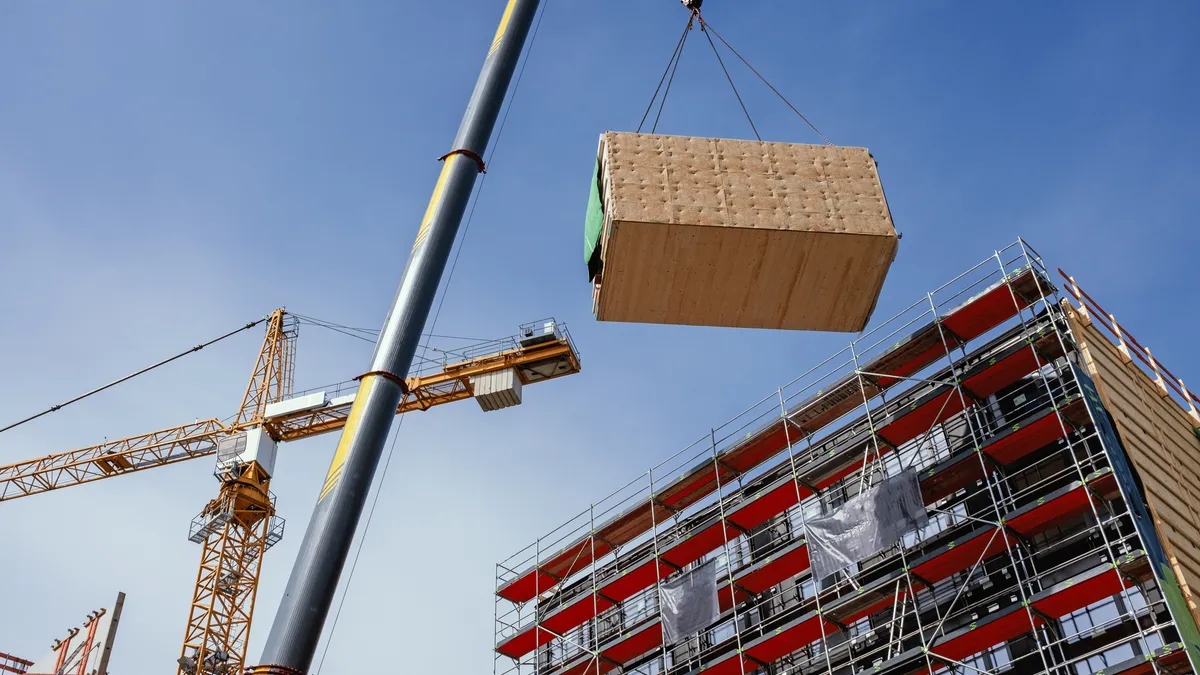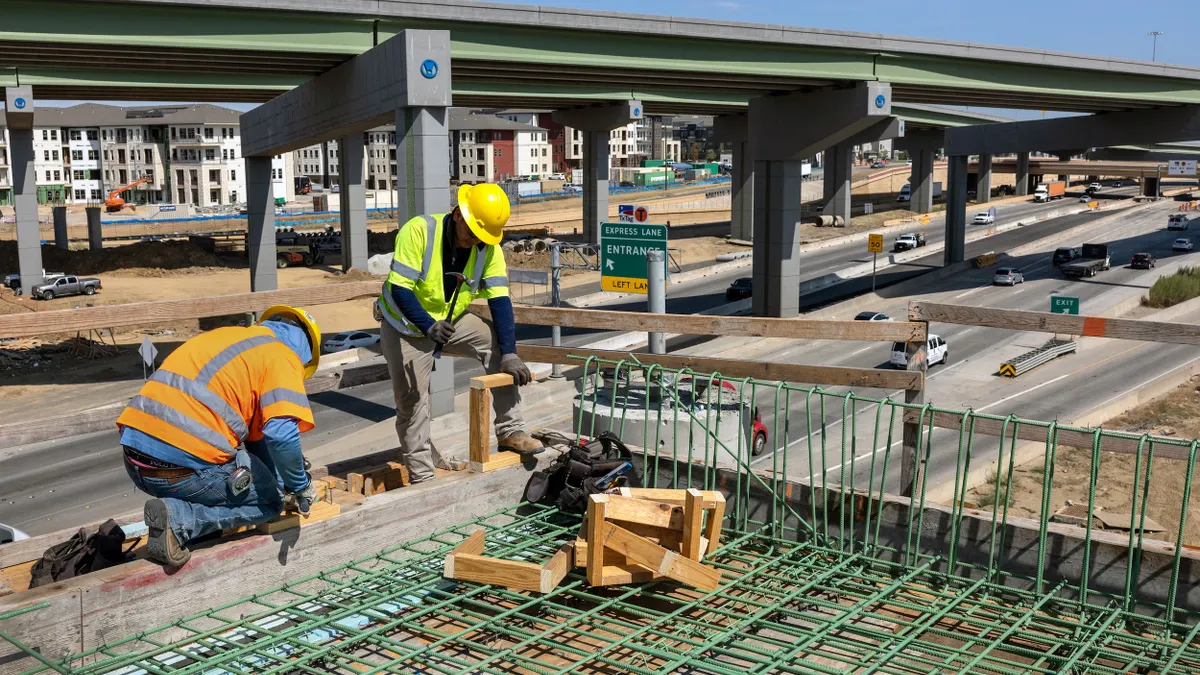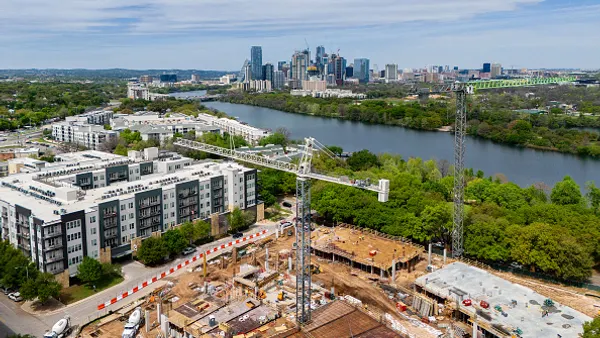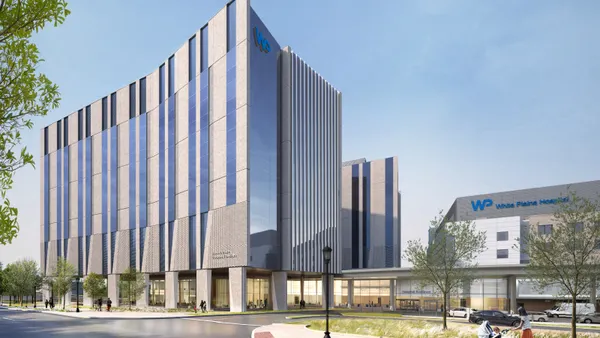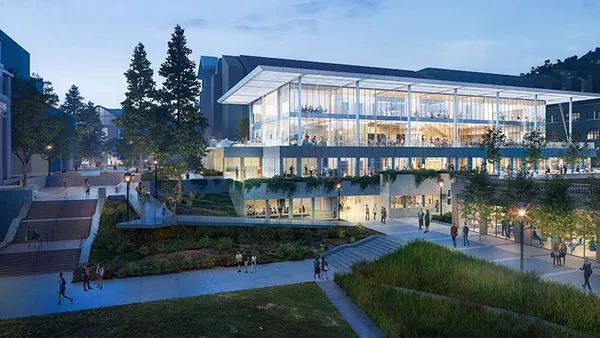The Commonwealth of Virginia last month became the first state to adopt the International Code Council and Modular Building Institute’s 1200 and 1205 standards.
The code recommendation contains regulatory approaches for offsite construction and seeks to create uniformity in the offsite construction process.
As the industry increasingly utilizes offsite construction for projects like hotels and affordable housing, the code adoption is a step in the right direction, Ryan Colker, vice president of innovation for the ICC, told Construction Dive.
Here, Colker talks with Construction Dive about what the code adoption means for builders in Virginia and the surrounding area, as well as how likely the standards are to become more commonplace.
The following has been edited for brevity and clarity.
CONSTRUCTION DIVE: What does the new code mean for builders in Virginia?

RYAN COLKER: We've seen offsite construction as a huge opportunity to address a whole host of different issues: affordability, sustainability and workforce issues that the construction industry is seeing. Thirty-nine states regulate offsite construction at the state level, including Virginia.
So, recognizing the importance of a consistent regulatory approach for offsite construction, ICC developed standards in conjunction with the Modular Building Institute to capture best practices around how offsite construction is verified. And so Virginia incorporated into their program those two new ICCMBI standards — standards 1200 and 1205 — to bolster their program.
I mean, they had already been doing a lot of the things that are captured in the standards, but recognizing that having consistency across states and localities unlocks even more potential for offsite. So they went ahead and took that step.
What do the standards do?
Offsite in general needs to comply with the same requirements as a site-built building. So, those are already contained within the building code. The standards themselves really set up the process. So if you think about offsite construction that's happening in a factory, it's very different from a site-built project where an inspector can come everyday if they wanted to, and poke behind the walls, see what's happening.
In offsite construction, what shows up at the jobsite is highly finished walls that are closed in, and it's not really practical for a local inspector to really understand or know what's behind the walls. So, the offsite construction standards really set up the process for assuring that offsite construction meets the requirements in the code.
Bringing the inspection process back into the factory, assuring that there's a quality assurance program and how that inspection happens, who's qualified to do those inspections, and then how that gets reported to the state. And ultimately, what local officials do with all that information.
If I’m a builder in or around Virginia, what’s this going to mean for me?
If you're already working in Virginia, there's not a huge difference. What we're really trying to do is, say a manufacturing facility is in a neighboring state and you want to be able to deliver to multiple different states in a region. If there's consistency in the verification process, that creates efficiencies in the factory.
I’ve read Utah is considering adopting the code as well. Is that the case?
Potentially. Utah is an interesting story. Salt Lake City was actually the first one to adopt the offsite standards, whereas Virginia has a statewide program, Utah does not, so it leaves the entire offsite construction process to local officials.
So if you think about a local official trying to deal with an offsite construction project when they may not have had exposure to the industry, they don’t necessarily have a process to deal with that like some states do. So it becomes a one-off, project-by-project engagement, and not unlocking the value that offsite provides. Salt Lake recognized that and, like many places that have an affordable housing issue, they saw offsite as a strategy.
Since then, there’s been a lot of interest in Utah around offsite construction. So legislation was introduced earlier this year to establish a statewide program based on the standards.
Is adopting standards like these a stepping stone to making offsite construction more commonplace?
Absolutely. Offsite is inherently an efficient process and the regulatory pieces could be a barrier. Particularly in states that don't have statewide programs it's a challenge. So, having standards in place helps to move that forward.
We’ve seen interest in other states as well. Ohio is actually in the process of updating their offsite construction regulatory requirements, and in their draft, they've incorporated portions of standard 1205.
In the Maui wildfire recovery effort, Hawaii does not have a statewide program, but FEMA and Maui County have put out an RFP for modular recovery housing and have cited the standards as a compliance mechanism. So, lots of interest. We’ll see where it goes.



